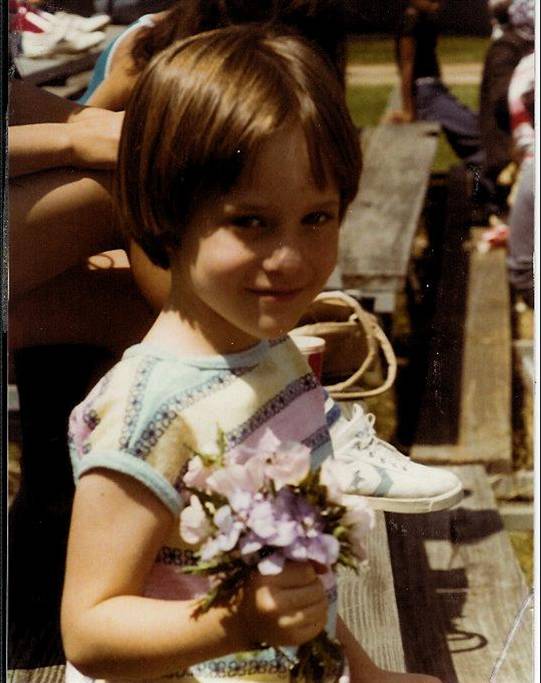
Here I am at 9 years old.
When I was nine years old, I went away to summer camp for the first time. Judging from the whirlwind of preparation that overtook our household in the weeks before I left, you would have thought I was going to another continent, maybe even to the moon. In the midst of all the piles of supplies gathered in our living room that were somehow supposed to fit into one small trunk, one indispensable piece of the camp readiness equipment was the black permanent marker we used to mark my things. According to my mom’s instructions, everything that came into the living room staging area to be packed for camp was immediately marked with permanent marker. T-shirts, sandals, bug spray, even toothpaste—all were inscribed with my name.
I thought this ritual of marking things a little silly at first (Even the bottle of sunscreen?) and then a bit embarrassing (Really? Even my underwear?). But then I arrived in a cabin of twelve girls and two counselors and saw just how necessary this practice had been. From day one the cabin was in utter chaos: our trunks and suitcases spilling out into the middle of the room, wet swimsuits in puddles on the floor, and all the clothes our mothers had neatly packed and folded now strewn about. With multiple identical Rainbow Brite T-shirts thrown over various bunk beds, how were we to know whose was whose? I found myself relieved that I could always spot mine—the black permanent marker on the tag had done its job, and my mother’s wisdom had travelled with me even when she could not.
Marked. Set apart from the others. Ownership declared.
These are actions meant not only for camping supplies but for people as well. Again and again in Scripture God declares that we are a people who are set apart, called to be different than the world around us, marked for a purpose greater than we could dream of.
Anointing was used to mark prophets, priests, and kings as set apart for a special calling. Once they had been anointed, they would be recognized by those around them as being different from their peers. The sheen of oil would wear off, but their lives and identities were altered forever by that experience.
Having grown up in a nation that prides itself on the principle of the separation of church and state, it’s hard for me to picture a king, the leader of a nation, being given authority and permission to lead by a priest and a prophet. When I struggle with that picture, it makes me realize again how different our own culture is from that of ancient Israel. The king was not just a political leader or figurehead. Solomon’s spiritual lineage and his continued dedication to worship God alone was just as important as any civil or military role he played as the nation’s leader. In fact, the success or failure of his reign would rise and fall not on his military victories or financial gain, but on his commitment to staying set apart—marked to be different in the purity of his dedication to God.
Anointing means being set apart. It means walking in an aroma of God’s presence. It means being marked as one who belongs to the Almighty. And it’s not only for prophets, priests, and kings; it’s also for you. You are anointed in Christ.
Now it is God who makes both us and you stand firm in Christ. He anointed us, set his seal of ownership on us, and put his Spirit in our hearts as a deposit, guaranteeing what is to come.
2 Corinthians 1:21-22
Leave a Reply